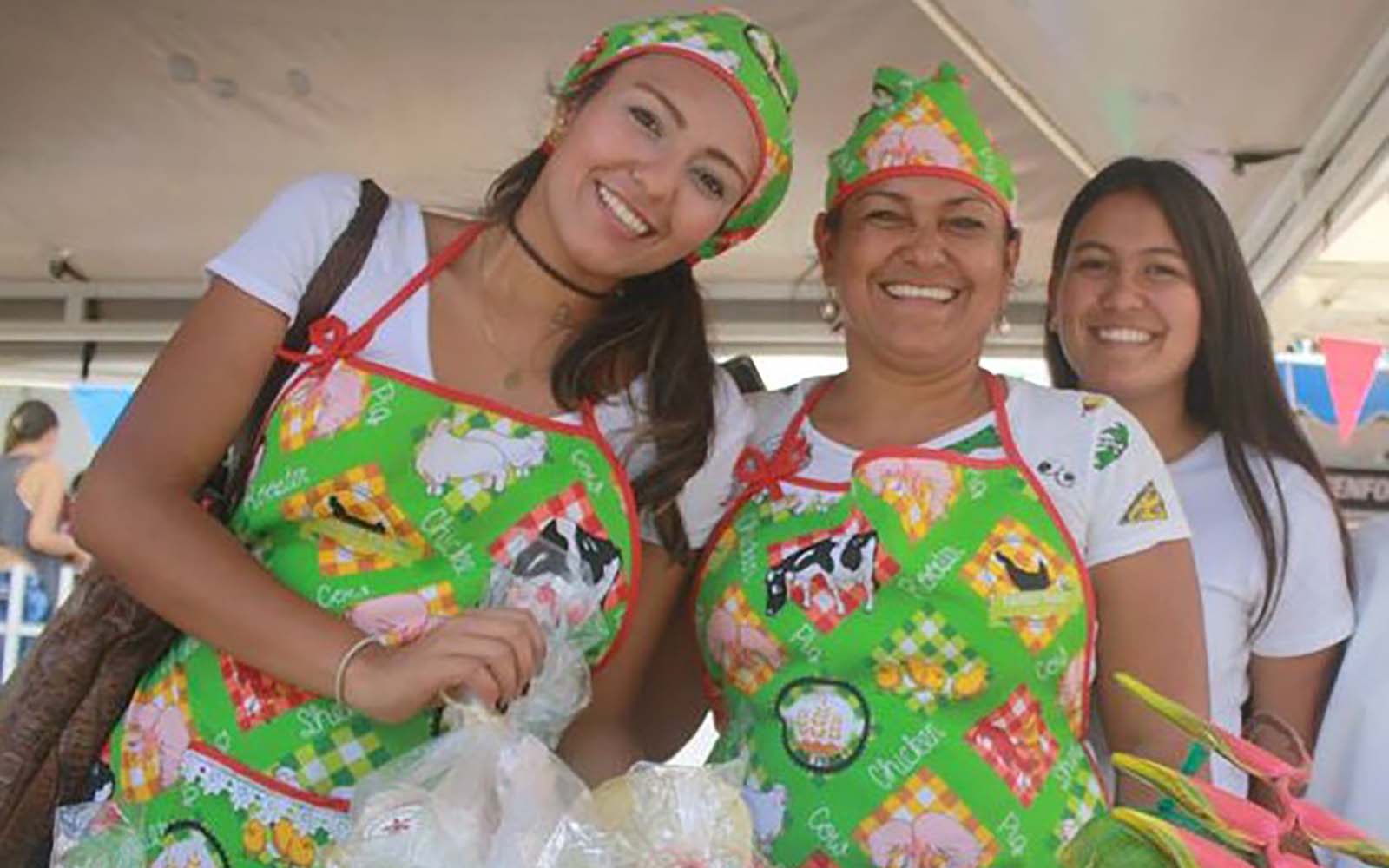Supporting women’s economic autonomy and entrepreneurship in Colombia
Story

In Colombia, Nieves works seven days a week, both as a seamstress in Bucaramanga and at her family’s bakery in the countryside. She also dedicates much of her time to her community, attending local meetings to discuss social projects and public service improvements in the city.
“I hope one day the bakery can guarantee good living conditions for my family and I don’t have to work so hard,” says Nieves, 56. “Still, I will continue to look at the needs of the community and search for ways to help.”
Inspired by Nieves’ hard work and perseverance, and that of many other Colombian women, two Cuso International volunteers, Laura Martinez and Javier Restrepo, developed a training program in partnership with Fundación Mujer y Futuro/Women and Future Foundation to support women’s economic autonomy and entrepreneurship.
“By fostering their economic autonomy, the training program and toolkit will allow these women to have more time for political and community participation,” says Graciela Terraza, Project Coordinator for Fundación Mujer Y Futuro. She says that many women associated with the foundation spend much of their time, as heads of households, on domestic work, while also generating an income for their families through the development of small businesses.
The toolkit includes six modules that support women’s business development: conception of business ideas, construction of business ventures, and business strengthening to increase profitability and sustainability.
In early March, Laura led workshops to share the toolkit – called “Women Walking towards Economic Autonomy” – with local trainers who work with approximately 300 rural female micro-entrepreneurs through Fundación Mujer y Futuro. In the next few months, the trainers will share the toolkit with the micro-entrepreneurs, including Nieves.
“The toolkit will help women improve the performance of their businesses,” says Javier. In turn, their self-confidence will grow, and they can further build and develop their businesses and future ideas.
Laura and Javier say the training program is the result of their previous volunteer experiences in Colombia, which gave them the skills and knowledge to design business-strengthening tools according to the local context.
“Javier had worked at the Association of Organic Farmers of Ibagué and Cali’s Chamber of Commerce,” says Laura. “Meanwhile, I had worked with Chocó’s Chamber of Commerce and Associations of Female Micro-entrepreneurs in the same region. Although we both have related professional education, these volunteer experiences gave us the necessary learning and understanding to create the training program.”